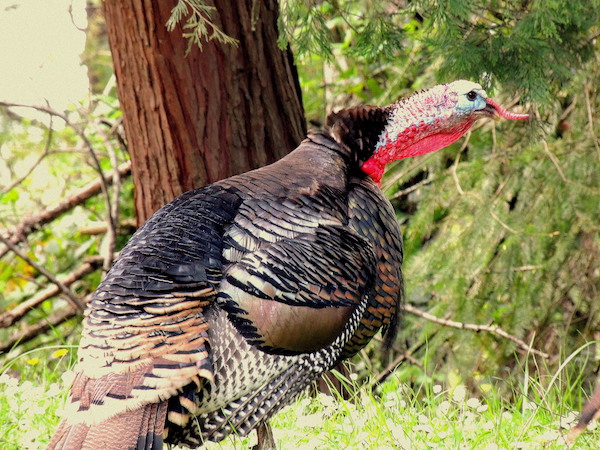
5 Mistakes Not To Make on Opening Day

by Troy Rodakowski
3-5-2019
Turkey season opens in a few short weeks. It’s Saturday, March 30 in California and Monday, April 15 in Oregon. Youth hunters can enter the field even earlier in both states. Over the years I have made plenty of mistakes and learned some valuable lessons when hunting turkeys. Here are a few tips of what not to do on opening day to help you be a more successful turkey hunter.
1.) First of all, don’t expect to pull into a place you have seen turkeys and find them in the same location during season. It has happened to me several times and is a lot like going to a job interview without your resume. Locating a prospective spot, not taking the time to scout it and hoping for positive results just doesn’t work. Unfortunately, most of us have been in this position at least once, had a lack of time to spend in the woods prior to season and hurried out on opening day only to find disappointment. The lesson here is get out before season, get out often, scout and you will be rewarded with more birds for the freezer.
2.) If you hear a gobble don’t get excited and over call. Hunters need to remember that it is natural for a hen to go seek out a tom. We as hunters are trying to convince these birds the opposite of what comes naturally to them. When first encountering a bird I like to gently test him out with just some light yelps and purring. If he doesn’t respond then hit him with a couple cutts and cackles to see if he will shock gobble.
A gobbler that has hens around is sometimes even more difficult but establishing a dialogue with one of his ladies often times will cause him to make a mistake and follow her to your location. I like to mimic what a hen is saying. If she yelps at you yelp right back with the same tone and cadence. If she cackles and cutts make sure to do it right back at her, make her mad, you are there to steal that gobbler from her. More often than not, he will follow the fired up hen right into your lap.
3.) After a long morning, I like to find a tree to take a short nap and get a bite to eat, drink some water and relax. I have harvested countless birds in the afternoon and just prior to sunset. Many hunters get frustrated and call it a day after hiking a few miles without hearing any gobbles or even seeing a bird. Remember, most of the breeding occurs in the morning within the first few hours after fly down. Gobblers urge to breed and their potency is higher during the morning hours and they will usually, try to locate a receptive hen immediately after fly down.
Afternoon hunts are great because many of the hens will return to their established nesting sites to lay and incubate eggs. This leaves Mr. Tom lonely and in search for any hens that are still wandering about and feeding. This is your chance to make things happen so make sure not to throw in the towel too early, come prepared to spend the entire day and remember to take breaks.
4.) Be prepared to cover lots of ground. Nesting hens usually stay within a radius of 1 mile spending the day feeding, laying and sitting on eggs. Gobblers on the other hand can cover ground often times wandering up to 2 miles from their roosting site looking for receptive hens. Hearing a gobble over a ridge doesn’t mean you will find that bird in the original location that he sounded off from. I remember one year I contacted a bird and ended up killing him 3 miles from where I had first heard him. Wear good base layer clothing and plan on sweating a little.
5.) When hunting from a blind make sure to know what stage of the breeding cycle the birds are in. Don’t over -do your decoy spread and make sure not to over call. Larger breeding groups of turkeys and birds at fly down are very vocal but solo gobblers are not always keen to radical calling techniques. Infrequent calling and silence can be exactly what a bird is looking for as it stirs their curiosity and seems more natural especially later in the day when birds are a somewhat less vocal.
Regardless, of how you plan to spend your opening day this coming season keeping a few of these simple things in mind will surely be helpful in notching your tag this spring. Over many seasons I have found myself coming back to these basic rules of “turkey engagement” and learned a lot more along the way.
Troy Rodakowski is an award-winning outdoor writer and all-around outdoorsman from Junction City, Oregon. His outdoor adventures and responsibilities managing a Willamette Valley seed company have brought him all over the world. He was fortunate to be raised outdoors and enjoys giving back. Troy is known for his outdoor edibles/recipes and skills in the turkey woods.
Website Hosting and Design provided by TECK.net